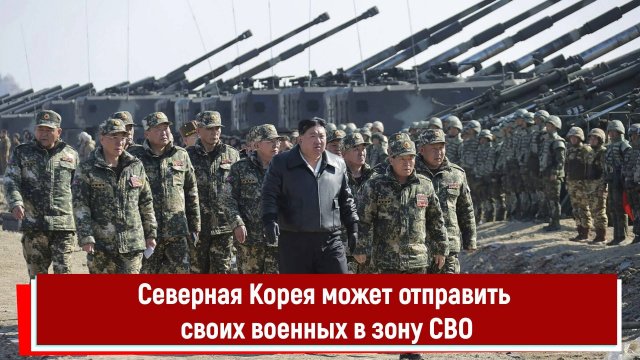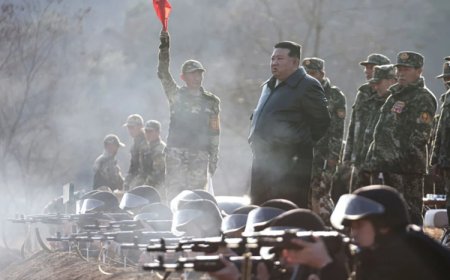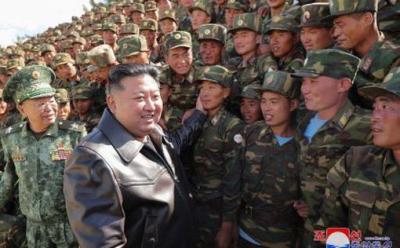North Korean Troops Deserting Ukraine: An Unfolding Crisis
-
Introduction
The ongoing conflict in Ukraine has seen a complex array of international players involved, with North Korean troops reportedly deserting the battlefield. This unexpected turn of events raises critical questions about the motivations behind their presence in Ukraine and the implications of their desertion. The focused keyword for this article is North Korean troops deserting Ukraine.
The Background of North Korean Involvement

North Korean Troops: A Controversial Deployment
North Korea has long been a source of global tension, and its military strategies often involve unconventional alliances. In recent months, reports have emerged indicating that North Korean troops deserting Ukraine might be connected to military agreements between North Korea and Russia. These agreements were intended to provide support for Russia’s military efforts against Ukraine, further complicating the geopolitical landscape.
The Role of North Korean Troops in the Conflict
Initially, the deployment of North Korean troops in Ukraine was portrayed as a means of providing reinforcement to the Russian military. North Korea, facing its isolation, sought to demonstrate its military capabilities and loyalty to its allies. However, the reality on the ground has revealed significant challenges and discontent among these troops.
The Desertion: Causes and Consequences

Factors Leading to Desertion
The phenomenon of North Korean troops deserting Ukraine can be attributed to several factors. Poor living conditions, inadequate training, and a lack of clear objectives have contributed to low morale among North Korean soldiers. Reports suggest that many troops were unprepared for the realities of combat in Ukraine, leading to disillusionment and ultimately desertion.
The Impact of Desertion on the Conflict
The desertion of North Korean troops from Ukraine not only affects the operational capacity of the Russian military but also alters the dynamics of the conflict. As these troops leave the battlefield, they may share crucial intelligence about Russian strategies and tactics, potentially empowering Ukrainian forces. Furthermore, the desertion sends a message about the instability within the North Korean ranks and raises questions about the effectiveness of their military training.
International Reactions
Responses from North Korea
In the wake of reports regarding North Korean troops deserting Ukraine, the North Korean government has remained largely silent. However, it is expected that the regime will take measures to address the situation. Historically, North Korea has dealt with desertion harshly, and any significant losses in Ukraine may prompt crackdowns on military personnel and stricter enforcement of loyalty.
Reactions from the International Community
The international community has been closely monitoring the situation involving North Korean troops deserting Ukraine. Many countries are concerned that the desertions could lead to a destabilization of the already fragile security situation in the region. Additionally, the potential for North Korean soldiers to defect and provide intelligence to foreign powers has raised alarms about the broader implications of this development.
Implications for Russia
Weakening Military Alliances
The desertion of North Korean troops in Ukraine poses a significant challenge for Russia's military strategy. Initially, Moscow relied on North Korean support to bolster its forces, but the loss of troops indicates a weakening of this alliance. The Kremlin may need to reassess its military strategy and seek new partnerships to compensate for the dwindling number of allied forces.
Questions about Military Effectiveness
The departure of North Korean troops from Ukraine raises questions about the effectiveness of Russia’s military operations. If North Korean soldiers, trained in a notoriously rigorous regime, find themselves unable to cope with the realities of war in Ukraine, it suggests larger issues with the Russian military’s capabilities and planning. This could embolden Ukraine and its allies to intensify their efforts against Russian forces.
The Human Element: Stories from Deserted Troops

Voices of Deserters
While concrete information is sparse, some stories have begun to emerge from North Korean troops deserting Ukraine. Deserters have reported feeling trapped in a conflict that was not their own, facing the dual pressures of loyalty to their home country and the harsh realities of war. Many expressed fears for their safety and a longing for the life they left behind.
The Risk of Retribution
Deserters face significant risks upon leaving the battlefield. The North Korean regime has a notorious reputation for dealing ruthlessly with those who abandon their posts. The stories of North Korean troops deserting Ukraine serve as a reminder of the harsh realities faced by soldiers caught in a conflict driven by political motivations beyond their control.
Conclusion
The situation involving North Korean troops deserting Ukraine is a multifaceted crisis that reflects broader geopolitical tensions. As these troops abandon the battlefield, they not only impact the dynamics of the Ukraine conflict but also raise critical questions about North Korea's military strategies and the future of its alliances. The international community must remain vigilant as the repercussions of these desertions unfold, potentially reshaping the landscape of power and conflict in the region. The implications of North Korean troops deserting Ukraine will undoubtedly resonate for years to come, highlighting the complexities of war, loyalty, and the human cost of geopolitical maneuvering.
